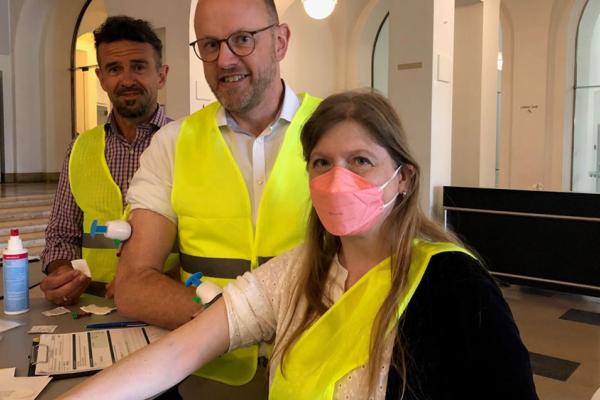
The EU will invest EUR 6.5 billion in ESF+ funds in Germany to support social cohesion, inclusive and high-quality vocational education and training including apprenticeships and lifelong learning in order to increase the integration of people, often with a migration background, into the labour market. It will also support the development of socially inclusive services, such as improving the employability of disadvantaged groups.
The funds will help the workforce and businesses, in particular SMEs in growing more resilient by investing in upskilling and reskilling to create a climate-neutral, more digital and inclusive society. Priority will be given to measures in the field of social inclusion, for example combatting child poverty and the integration of migrants and refugees, including those fleeing Russia's invasion of Ukraine.
These ESF+ investments will help Germany to achieve its 2030 targets under the European Pillar of Social Rights by raising the employment rate to 83%, the annual adult learning to 65% and curbing poverty and social exclusion with nearly 1.2 million fewer people at risk.
The ESF+ in Germany is implemented via one national,15 regional programmes and one multi-fund programme, comprising funding from the ESF+ and the European Regional Development Fund (ERDF), which covers employment, education and skills and social inclusion.
Latest projects & news

Blood-it-yourself: a new approach to remote blood testing

See you in Schmalkalden – Fostering participation, building bridges, embracing diversity

